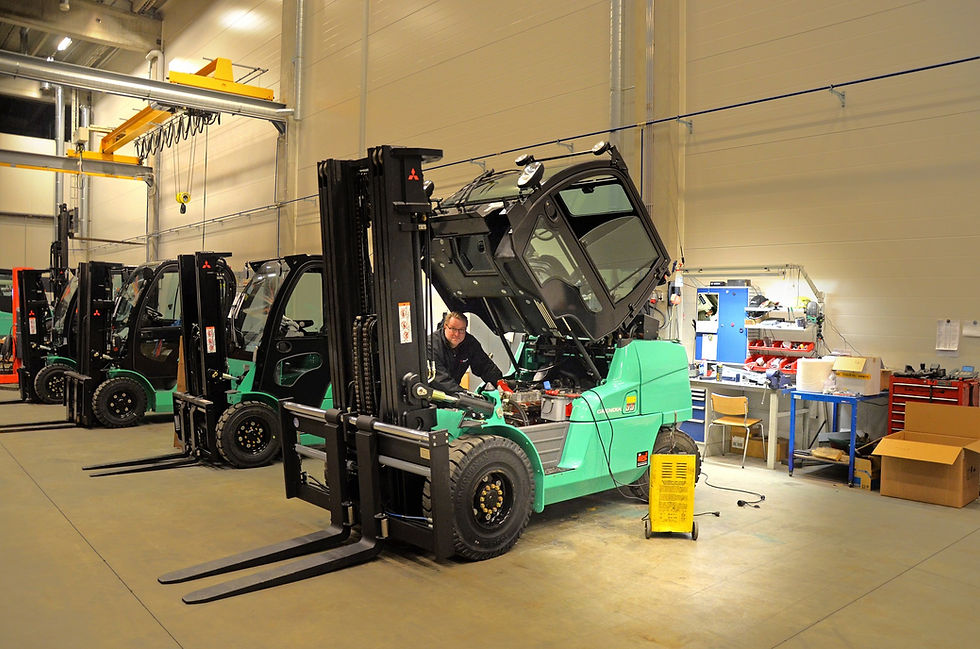Forklift Risk Assessment
Workplace safety and operational efficiency go hand in hand—especially when it comes to forklifts and their attachments. These machines are essential across many sectors, but their safe use depends on strict compliance with regulatory standards. At Pulo Compliance, we specialise in statutory inspections, including forklift LOLER inspections, helping businesses across the East Midlands stay compliant and create safer working environments.
Forklift operations come with inherent risks, from mechanical issues to incorrect use of attachments, all of which can lead to serious accidents and unplanned downtime. Through routine inspections and thorough risk assessments, we help you identify potential issues early, reduce hazards, and keep your equipment running safely and efficiently.

LOLER and Its Relevance to Forklifts
The Lifting Operations and Lifting Equipment Regulations (LOLER) were introduced to ensure that lifting equipment, such as forklifts and their attachments, operate safely and reliably. These regulations mandate that lifting equipment must undergo routine inspections to identify potential faults and prevent accidents. By doing so, LOLER safeguards the well-being of operators, co-workers, and anyone present in the working environment.
A forklift LOLER inspection entails a meticulous examination of all components that play a role in lifting operations. This includes checking the condition of forks to confirm their strength and stability, assessing the hydraulic systems to ensure proper functionality, and verifying that attachments are securely mounted and operate as intended. Each element is scrutinised to confirm compliance with LOLER standards, providing peace of mind and reducing risks in the workplace.
Why Forklift Risk Assessment Matters
Conducting a forklift risk assessment is an integral part of workplace safety and compliance. This process identifies hazards associated with forklift use and implements preventative measures to address them. Hazards may arise from several factors, such as overloading the forklift, using unsuitable attachments, or operating the vehicle in poorly maintained or restricted spaces.
A thorough risk assessment examines how forklifts are used in your workplace, considering the tasks they perform, the loads they carry, and the environment in which they operate. By identifying these risks, businesses can implement strategies such as staff training, improved maintenance schedules, and the use of suitable attachments to ensure safer and more efficient operations. Regular assessments help businesses not only comply with LOLER regulations but also foster a culture of safety and responsibility.
How Pulo Compliance Can Help
-
Comprehensive forklift LOLER inspections conducted by qualified experts to ensure all lifting equipment meets stringent safety standards.
-
Tailored forklift risk assessments to identify workplace hazards and recommend actionable safety improvements.
-
Expert advice on the proper use and maintenance of forklifts and their attachments to maximise efficiency and longevity.
-
Support with maintaining and organising statutory documentation to ensure regulatory compliance.
-
Guidance on developing a proactive safety culture within your workforce, minimising risks and fostering operational excellence.
At Pulo Compliance, we understand the challenges businesses face in maintaining compliance while ensuring operational efficiency. Our services include detailed forklift LOLER inspections, which are carried out by qualified inspectors who understand the intricacies of lifting equipment. During an inspection, our experts evaluate every component to ensure it meets safety standards, from the forklift’s forks and lifting mechanisms to the attachments used.
In addition to inspections, we offer professional guidance tailored to your business needs. This includes advice on best practices for forklift operation, maintaining attachments to maximise their longevity, and ensuring proper documentation is in place for statutory compliance. With our expertise, you can rest assured that your equipment and practices are up to standard, reducing the likelihood of accidents and penalties.